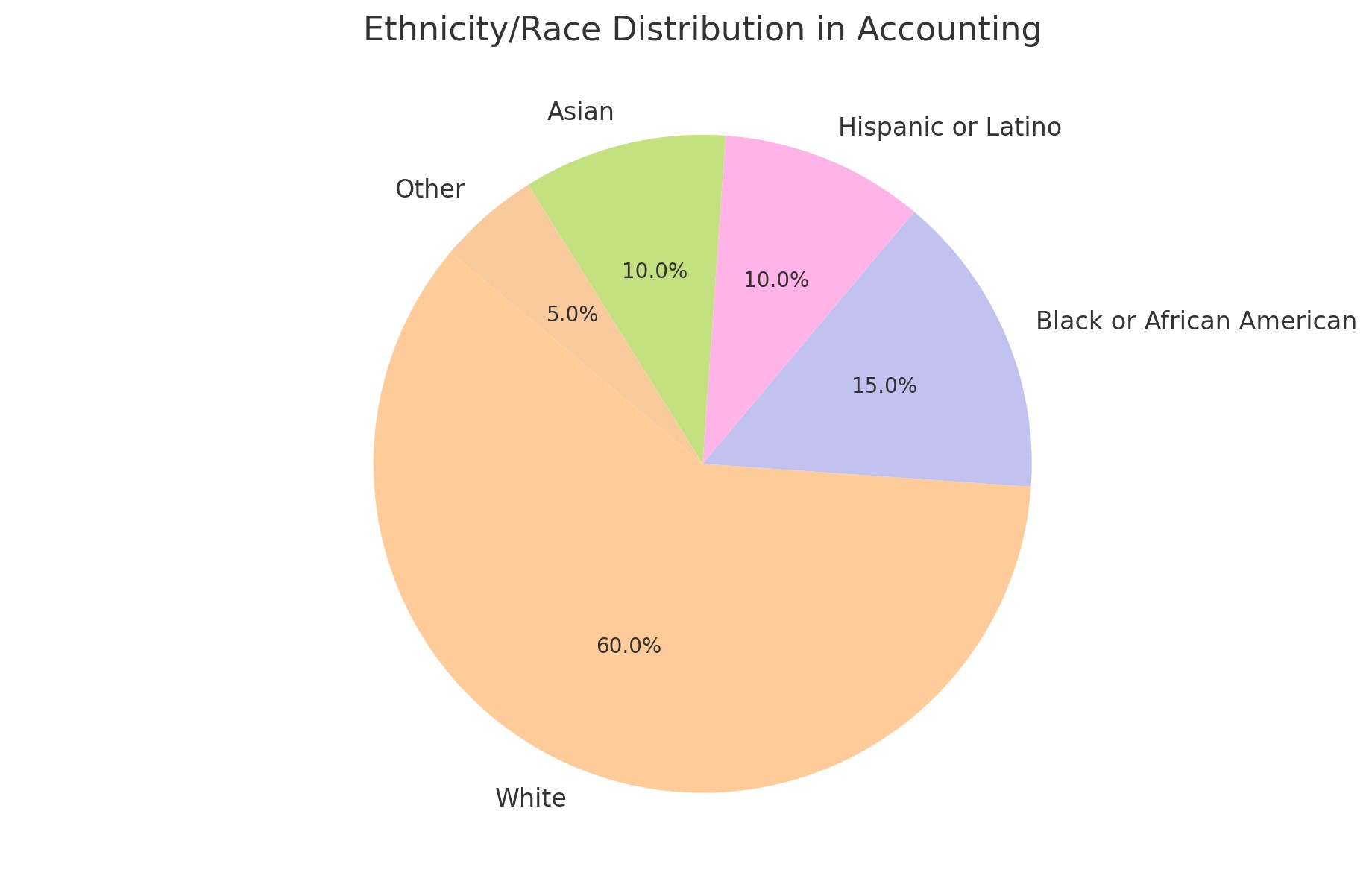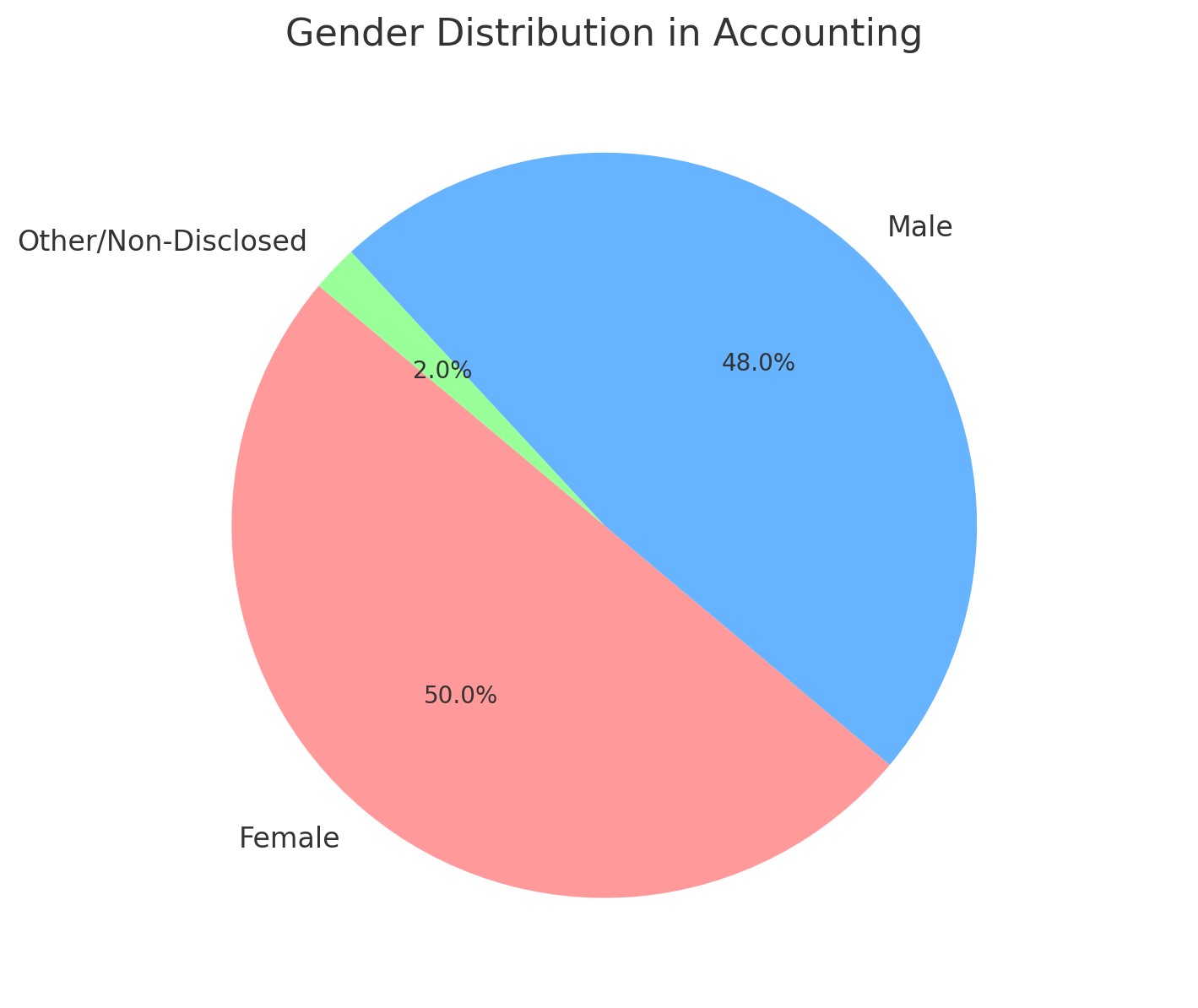Welcome to the ultimate guide for finding your dream job in accounting. In today’s ever-evolving world, accounting goes beyond number crunching. It rests at the heart of financial success and ethical business practices, shaping the economic landscapes of businesses and individuals. This guide offers accounting job seekers insight into diverse opportunities suitable for recent graduates and experienced professionals seeking inclusive and forward-thinking work environments.
Accounting is foundational to a thriving economy, offering insights and oversight that drive fiscal strategies and decisions. As the market evolves, so does the demand for a diverse workforce. A workforce that understands and embodies the varied perspectives of clients and stakeholders worldwide. This guide is crafted to navigate you through the essentials of propelling your accounting career forward. Here, you’ll learn about educational prerequisites, areas of expertise, and the significant role of diversity within the profession.
We aim to equip you with the knowledge and tools to secure your place in this competitive yet rewarding field. Looking for accounting jobs? Our guide can help! We cover entry-level, part-time, and executive roles while emphasizing diversity and inclusion. Let’s begin this journey together to discover where your career in accounting can take you.
Educational Requirements
To launch a career in accounting, a solid educational foundation is essential. This path generally starts with a bachelor’s degree in accounting or a related field. This degree opens the first door to the world of Accounting, including entry-level accounting jobs, providing the fundamental knowledge and skills required in this sector.
After earning your degree, advancing your qualifications with certifications such as Certified Public Accountant (CPA), Certified Management Accountant (CMA), or Certified Internal Auditor (CIA) can make a significant difference. These certifications enhance your resume and unlock opportunities for specialized roles like accounts receivable or accounts payable jobs. Achieving these certifications requires passing rigorous exams and meeting specific experience criteria. However, the dedication pays off by setting you on a successful career trajectory in accounting.
This educational journey equips you to handle various accounting tasks effectively and prepares you for more advanced roles, including part-time accounting jobs demanding high expertise. Further, continuous learning and updating industry trends ensure your skills remain relevant and in demand.
Areas of Expertise
The accounting field offers a broad spectrum of specializations, each offering unique challenges and rewards. Below are some key areas to consider:
- Public Accounting: This area focuses on audit, tax, and consulting services for various clients. It’s a great starting point for entry-level accounting jobs, giving broad exposure to different aspects of accounting.
- Management Accounting: Here, accountants deal with financial reporting and analysis for internal use, aiding business managers in making informed decisions. It’s ideal for those interested in a strategic role within companies.
- Governmental Accounting: This specialization involves working in government agencies, managing funds, ensuring the effective use of taxpayer money, and conducting financial investigations. It’s an avenue for contributing to public service.
- Forensic Accounting: If you have a keen eye for detail and a passion for investigation, forensic accounting offers a blend of accounting skills with investigative work, primarily for legal matters.
- Environmental Accounting: This niche combines accounting principles with ecological concerns, helping businesses manage their environmental impact and costs. It’s perfect for those who want to make a difference in sustainable business practices.
Exploring these areas can lead you to a fulfilling career path that matches your skills and interests. Whether contributing to governmental finances’ accountability or playing a critical role in environmental sustainability, accounting offers diverse opportunities for professional growth and impact. Engaging in continuous learning and expanding your skill set according to the industry demands ensures that you remain competitive in this evolving field.
Demographics in the United States
Ethnicity/Race:
The ethnic and racial composition of the accounting profession in the U.S. is steadily diversifying. Traditionally dominated by white professionals, there has been a concerted effort to encourage more inclusive participation. This diversity is crucial for bringing varied perspectives and fostering innovation and a comprehensive understanding of financial management.

Gender:
The gender dynamics within the accounting field have seen remarkable progress towards balance. Today, the industry boasts almost equal representation between male and female professionals. This gender diversity enriches the workplace culture and contributes to more equitable and inclusive work environments.

Age:
Accounting appeals to individuals across a wide age range. The profession attracts young graduates starting their careers and seasoned veterans offering a wealth of experience. This blend of youth and experience creates a dynamic workplace where innovative ideas meet tried-and-true practices, enhancing the quality and depth of work.
Understanding the demographics of the accounting field in the U.S. is crucial for companies dedicated to fostering an inclusive workplace. It also provides insights for job seekers about the openness and diversity of the profession. Such diversity is beneficial and essential for the accounting industry’s growth, creativity, and ethical integrity.
Salary Trends
The salary landscape for accounting professionals in the U.S. is favorable. In recent years, average salaries have significantly increased in entry-level positions, reflecting the high demand for accounting expertise. As of the latest data, entry-level accountants can expect an annual average wage of around $61,000, which signifies the value placed on accounting roles in the contemporary business environment.
However, the earning potential doesn’t stop there. The compensation packages become even more attractive for seasoned accountants and those possessing specialized certifications or skills, such as CPA or expertise in areas like forensic accounting. This indicates a broader recognition across industries of the need for skilled professionals capable of navigating complex financial landscapes.
Are you looking to understand more about specific salary figures across different specializations within accounting? Explore accounts receivable jobs and accounts payable jobs for insights into compensation trends that could influence your career decisions.
As the importance of accounting roles continues to rise with evolving business needs, the salary trend for these positions is expected to maintain its upward momentum. This promising outlook is a testament to the enduring value and critical nature of accounting expertise in today’s economy.

Hiring Trends
The accounting sector consistently shows a strong demand for professionals, underscoring its essential role in financial oversight and business strategic planning. Specific areas such as regulatory compliance, tax accounting, and forensic accounting are in high demand. Furthermore, the digital transformation within accounting has led to a growing need for professionals proficient in using advanced software tools like QuickBooks and Microsoft Excel, as well as those capable of financial analysis and data management.
Companies are not just looking for technical skills; they also value soft skills highly. The ability to think critically, communicate effectively, and work seamlessly in diverse teams are among the top attributes sought after in the modern job market. These skills complement technical knowledge, making candidates more versatile and adaptable.
For those interested in the broader scope of opportunities in the field of accounting, including part-time accounting jobs, the current hiring trends indicate a buoyant market. Employers are looking for talent that has the requisite accounting skills and brings a broad skill set to the table.
The accounting profession’s demand dynamics depict a sector that values detailed financial expertise and the soft skills essential for navigating today’s complex business environments. For accounting professionals, staying current with industry trends and continuously refining technical and soft skills can significantly boost career prospects.
Education Levels
The threshold for entering the accounting profession starts with a bachelor’s degree in accounting or a closely related discipline. This fundamental education introduces aspiring accountants to core principles, practices, and ethical considerations vital for their career progression. A bachelor’s degree is essential for those aspiring to land accounting jobs, from entry-level to more advanced positions.
However, the educational journey doesn’t stop at an undergraduate degree for many in this profession. Advancing one’s expertise through further education is a common path. Whether pursuing a master’s degree in accounting, a Master of Business Administration (MBA) focusing on accounting, or undertaking esteemed certifications such as CPA or CMA, these credentials are highly valued. They broaden an accountant’s knowledge and highlight a dedication to excellence in the field.
For individuals aiming for leadership roles or specialized areas within accounting, such advanced education and certifications are often indispensable. These qualifications can set candidates apart in a competitive job market and pave the way for professional growth and higher earnings potential.
The education levels within the accounting profession range from bachelor’s degrees to advanced certifications and degrees. Each step in this educational journey equips professionals with the skills needed to navigate the complexities of the accounting landscape, ensuring they remain relevant and in demand.
Skills in Demand
In the ever-evolving business world, the skills necessary for success in accounting extend well beyond fundamental number-crunching. Today’s accounting professionals need a comprehensive skill set combining traditional expertise and modern abilities. Here’s a look at the skills currently in high demand:
- Technological Proficiency: Understanding and utilizing accounting software, data analysis tools, and cybersecurity measures are crucial in today’s digital age.
- Specialized Expertise: Deep knowledge in specific areas such as tax law, regulatory compliance, or forensic accounting sets candidates apart in the job market.
- Adaptability: The ability to adjust to changes in financial regulations, tax laws, and technological advancements is essential for staying ahead in the profession.
- Communication Skills: Understandably, conveying complex financial information to non-experts is invaluable, especially in diverse work environments.
- Data Analytics: The capacity to analyze and interpret data for better decision-making and strategic planning is increasingly important.
- Understanding of Emerging Technologies: Knowledge of blockchain, artificial intelligence (AI), and machine learning can offer a competitive edge, particularly in innovative accounting practices.
Enhancing and diversifying your skill set with these in-demand abilities can notably increase your marketability as an accounting professional. Moreover, it prepares you for future professional challenges and opportunities, ensuring you are well-equipped to contribute effectively in a rapidly changing business landscape.
Current & Future Accounting Jobs Outlook
The outlook for accounting professionals remains robust, with the U.S. Bureau of Labor Statistics projecting steady growth. The enduring demand for accountants underscores their pivotal role in financial reporting, tax preparation, and advising businesses on economic strategy. As organizations navigate an increasingly complex economic landscape, the expertise of skilled accountants becomes even more indispensable.
Looking towards the future, the evolution of technology and the global financial environment are expected to expand opportunities in accounting further. Skills in data analytics, an understanding of international finance, and proficiency in emerging technologies like blockchain will be highly sought after. Accountants who can adapt to these changes, embrace continuous learning, and leverage new technologies will find themselves at the forefront of their profession, well-equipped for the challenges and opportunities.
The promising outlook for accounting jobs reflects the critical need for financial experts capable of contributing to organizational success and navigating the complexities of today’s economic landscape. For those entering the field or seeking to advance their career, the future appears bright, with ample opportunities for growth and development within the realm of accounting.
FAQ’s
What qualifications do I need to start a career in accounting?
To start a career in accounting, you generally need a bachelor’s degree in accounting or a related field. Additional certifications, such as CPA, CMA, or CIA, can further enhance your qualifications and job prospects.
What are the different areas of expertise in accounting?
Accounting has various specializations, including public, management, governmental, forensic, and environmental accounting. Each area offers unique career opportunities and challenges.
What skills are in demand for accountants?
Employers are looking for accountants with traditional and modern skills, including technological proficiency, data analytics, adaptability, and strong communication skills.
Are there opportunities for career growth in accounting?
Yes, accounting offers significant career growth opportunities. Accountants can advance to higher positions, specialize in a particular field, or even start their practices.
How has technology impacted the accounting profession?
Technology has transformed accounting by introducing automation, enhanced data analysis capabilities, and improved cybersecurity measures. Accountants today must be proficient in using accounting software and staying informed on technological advancements.
Is accounting a stable career choice?
Accounting is considered a stable and secure career, coupled with consistent demand for professionals skilled in financial management and adherence to regulations.
Can accountants work in different industries?
Yes, accountants can work across various industries since financial expertise is needed in nearly every sector, offering many career opportunities.
What is the importance of diversity in accounting?
Diversity in accounting brings varied perspectives and approaches to financial management, which is crucial in a globalized business environment. It enhances innovation and problem-solving within the field.
How critical are communication skills in accounting?
Communication skills are vital for accountants to explain complex financial information clearly to individuals without a financial background, facilitating better decision-making and collaboration.
What are the prospects for accounting jobs in the future?
The outlook for accounting jobs is positive, with continuous growth expected. Integrating technology and evolving financial practices will likely create new opportunities in the field.
Additional Resources
Numerous resources are available for those interested in diving deeper into the accounting profession or staying updated with the latest industry trends. Here are some essential sites to get you started:
- For resources, certification information, and professional development opportunities, visit the American Institute of CPAs (AICPA).
- The National Association of State Boards of Accountancy (NASBA) offers guidance on the CPA exam, licensure information, and more, facilitating your journey toward becoming a certified accountant.
- To improve your accounting knowledge with free educational content, Accounting Coach is a valuable online resource.
- Stay informed about the latest news, analysis, and opinion pieces impacting the accounting industry through Accounting Today.
These websites are instrumental for newcomers and seasoned professionals in the accounting field, offering insights and knowledge to help guide your career path successfully. Further, leveraging these resources can enhance your understanding of the accounting profession and keep you abreast of the ever-evolving landscape of finance and regulation.
Conclusion
Accounting is more than just dealing with numbers and financial statements; it’s a dynamic profession offering stability, diversity, and the opportunity to impact the business world significantly. Through this guide, we have explored various aspects of an accounting career, from educational requirements to future job outlooks, emphasizing the importance of diversity and inclusivity every step of the way.
The accounting field presents endless opportunities for professional growth, innovation, and the chance to contribute to ethical and sound financial management. Whether you are just exploring job listing websites, a recent graduate or a seasoned professional looking to advance your career, there’s a place for you in this diverse and rewarding field. Continuous learning, adaptation to new technologies, and understanding the global financial landscape are crucial to thriving in accounting.
Now is the time to take the next step in your accounting journey by joining Diversity Employment. Find your dream job, connect with top employers, and promote workplace diversity in accounting.




